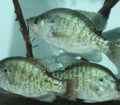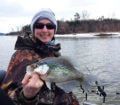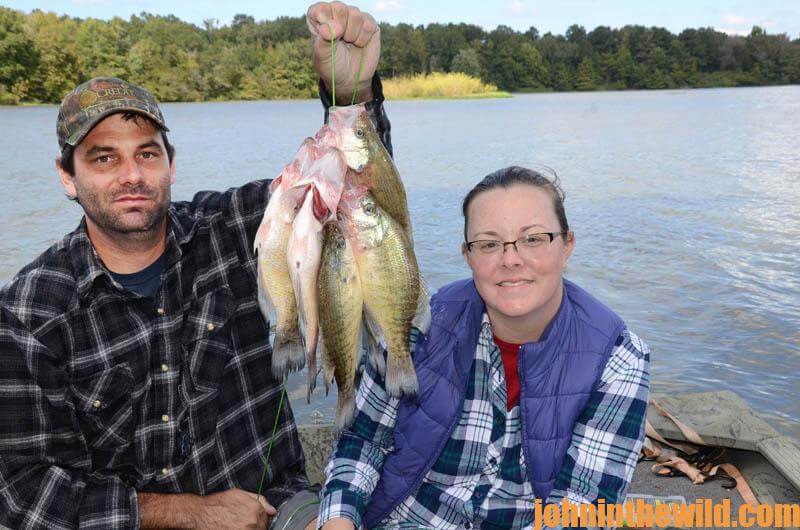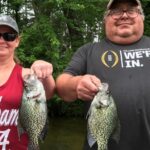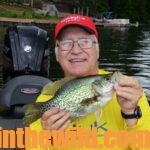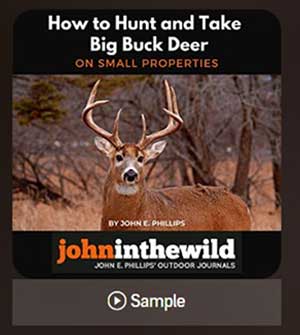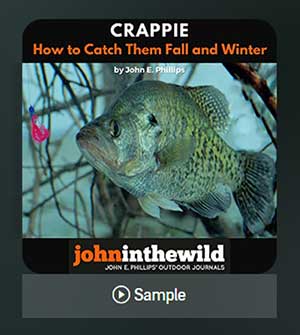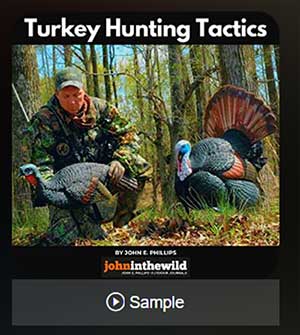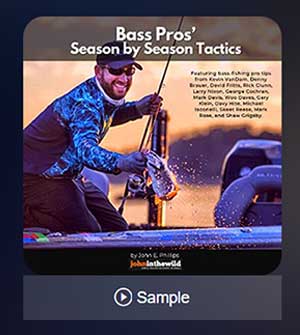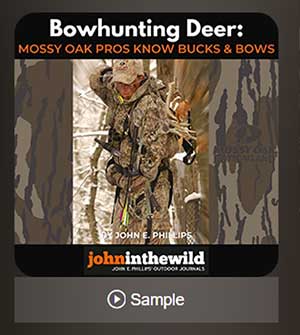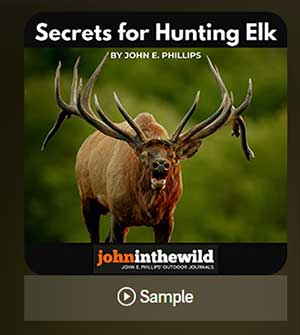Editor’s Note: When we think about great places to fish for crappie and to hunt, we often think of state lands, U.S. National Forest lands (https://www.fs.fed.us/) and the Bureau of Land Management (https://www.blm.gov/) properties. But there are thousands of acres of land you can hunt and remote places to fish in most states that the U.S. Army Corps of Engineers (https://www.usace.army.mil/) owns. Contact the Department of Fish and Wildlife in your state, the U.S. Forest Service, the Bureau of Land Management and the U.S. Army Corps of Engineers to learn of remote places you can hunt and fish for free or nearly free near where you live. Central/west Alabama and most of Alabama near the Mississippi border are probably the least-fished waterways in Alabama. Few people know about them, they’re not near any population centers, and there’s plenty of other waters you can fish closer to home. Many states home waters like these. However, that’s the reason that Gainesville and Aliceville lakes are two of the best crappie lakes in Alabama. Another interesting fact about these two lakes is they have a large volume of backwaters, and from October through February each year, the crappie generally will hold in 4-8 feet of water, since the backwaters stay warmer all year long than the main river does. To get the best information on how, where and when to catch crappie on Aliceville Lake this month, I went to the source that should have and does have some of the best fishing information on this reservoir – Chris McKee (205-339-5716, [email protected]), the district fisheries biologist for District III, which includes the Tombigbee and the Warrior rivers down to Demopolis.
 “Coldfire Creek has been a really great backwater area for both crappie fishermen and bass fishermen through the years,” Chris McKee reports. “But anywhere on the backwaters are productive places to fish. One of the better places to fish is where the state has put a fish attractor that’s about 30-yards wide and 30-yards long. It’s in the backwaters with a buoy on it that says ‘Fish Attractor.’”
“Coldfire Creek has been a really great backwater area for both crappie fishermen and bass fishermen through the years,” Chris McKee reports. “But anywhere on the backwaters are productive places to fish. One of the better places to fish is where the state has put a fish attractor that’s about 30-yards wide and 30-yards long. It’s in the backwaters with a buoy on it that says ‘Fish Attractor.’”
Something I know about fish attractors, especially the ones with buoys on them, is that anglers will label them as community fishing holes, which generally means that other anglers fish them all the time. Something else to recognize about community fishing holes with buoy markers on them is that most serious crappie fishermen won’t fish there. They’re convinced that all the crappie have been caught out of that area. However, if you’ve spent much time crappie fishing, you know that on a given day, crappie will move into and out of one spot, and then often other crappie will move in to that same place. So, at a buoyed-off fish attractor, you have a reasonably good chance of catching crappie there at different times of the day, because those fish attractors are put in a water depth that allows the crappie to move up and down on the structure, according to water clarity, temperature and current. These structures deployed by Alabama’s Department of Conservation and Natural Resources are in areas where the crappie and bass can utilize these structures, depending on water and weather conditions all year long. Don’t ever overlook the productivity of fish attractors.
McKee also explains, “We sampled Aliceville Lake in February, 2018, when the weather was really cold. We were surprised at what we learned. We found crappie holding in 2 foot of water in some of our backwater areas. So, don’t be afraid to fish some of those backwater regions for crappie all winter long – whether the weather is warm or cold. That’s why I say that crappie fishing – especially in the backwaters – can be very good all year long, except in the hottest part of the summer where the crappie may move out on the river channel. Even if the river’s muddy and the weather’s cold, you’ll often catch those crappie in shallow water.”
 Chris and Kasie McKee:
Chris and Kasie McKee:
One of the reasons that Chris knows so much about Alabama’s Aliceville and the other lakes in the district is he samples all these lakes to try and determine the size of fish in the lake and the population of the fish in the lake and where the fish are most often holding when he samples. A few years ago one of the southern states needed crappie for restocking one of their newer lakes, and because Aliceville has such an abundance of crappie, Aliceville was chosen to harvest the crappie from for the restocking program. State fisheries swap fish with each other frequently.
“One of the best reasons to fish Aliceville Lake is you can catch plenty of keeper-size crappie, and they’re delicious to eat,” Kasie McKee ([email protected], 205-331-1266), Chris’s wife, who’s also a fisheries biologist working in District III for the Aquatic Education Program, says. “I work with our staff in Montgomery and coordinate education programs statewide. We do in-class presentations, community fishing events and outdoor field trips. We teach everything from how to actually go fishing, what are the safety elements of fishing, how to rig tackle for certain species of fish, and how environmental science is relative to what students are studying in school, depending on their grade levels. We teach about the native fishes of Alabama and how to fish for sport fish. We also work with homeschooling organizations.”
Kasie and Chris McKee are much like mailmen who hike on their days off – even though they’ve been walking door to door delivering the mail. “On our off days, we like to go fishing. We try to fish the many different lakes that we’re responsible for,” Kasie McKee emphasizes.
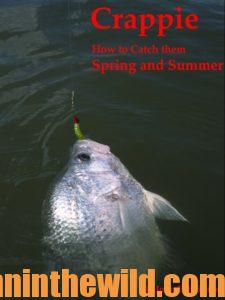
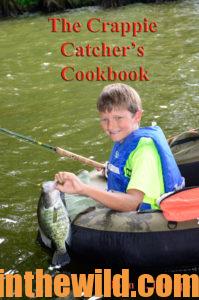 To learn more about crappie fishing, check out John E. Phillips’ book, “Crappie: How to Catch Them Spring and Summer,” in Kindle, paperback and Audible versions at https://www.amazon.com/Crappie-Catch-Them-Spring-Summer/dp/0692221166. For a free eBook, “The Crappie Catcher’s Cookbook,” go to https://www.emailmeform.com/builder/form/eb81136oQJ1g2fe9q6RNd73jh.
To learn more about crappie fishing, check out John E. Phillips’ book, “Crappie: How to Catch Them Spring and Summer,” in Kindle, paperback and Audible versions at https://www.amazon.com/Crappie-Catch-Them-Spring-Summer/dp/0692221166. For a free eBook, “The Crappie Catcher’s Cookbook,” go to https://www.emailmeform.com/builder/form/eb81136oQJ1g2fe9q6RNd73jh.

